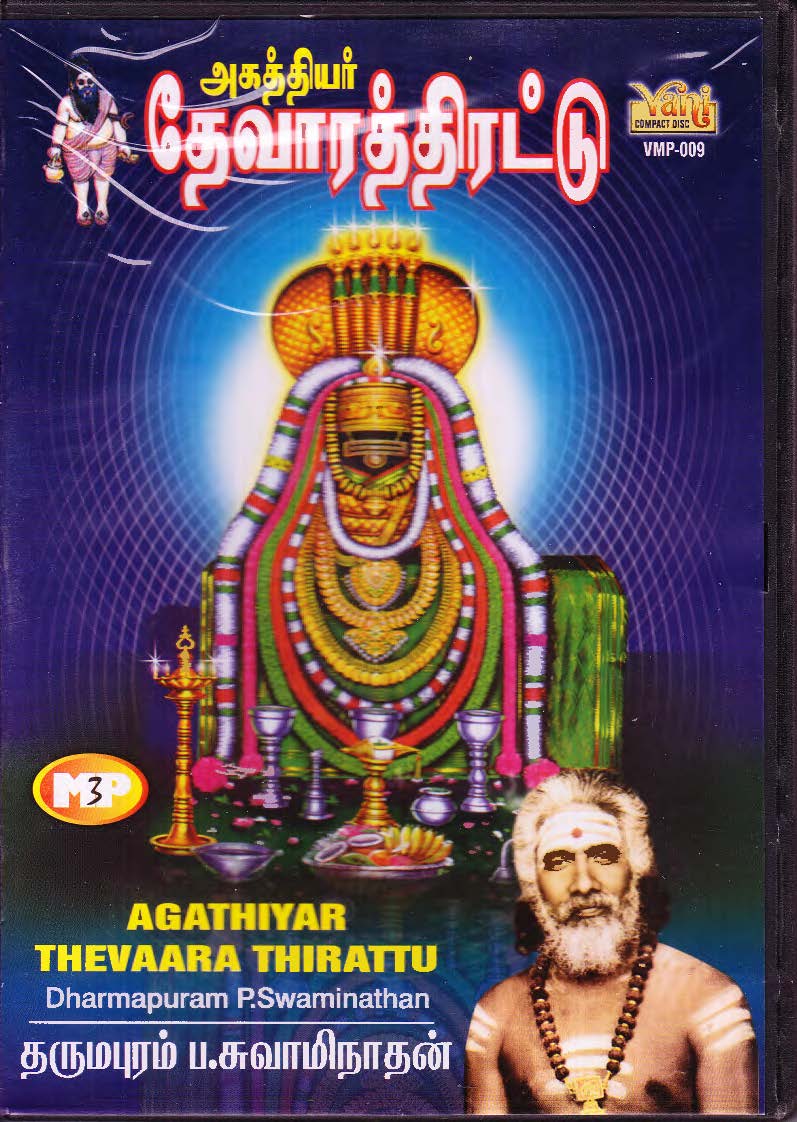
Yet thanks to his passion and ability, Kadri Gopalnath has managed to insert a typically western instrument to the flow of south Indian classical music, bringing out its resources and nuances in all altogether different light.ĩ. It’s a choice that runs decidedly counter to the musical culture Gopalnath grew up in where his adherence to strict canons albeit with their own internal evolution, has permitted the preservation of a thousand years old tradition.
#Dakshinamurthu thirupugal by dharmapuram swaminathan series
Kadri Gopalnath is a somewhat atypical figure on the Indian classical music scene on account of his choice of instrument the also sax, an instrument he began playing as a child and that he has bent to the needs of the needs of the raga in a series of brilliant left-field interpretations. Brahman, Atma Svaroopa, (Apavada) (Vidya sutra Vyakhya) (neti neti) It also contains the famous Maiteyi Brahmana, which is the dialogue between Yajnavalkya and his philosopher wife Maiteyi who demanded that her husband indicate to her the means of Self-realization. This Upanishad is considered the last word on Advaita. When everything is negated, what remains the desideratum is Brahman.

“Atmetyevopasita – worship Atman as Brahman: Athata aadeso neti neti-Therefore, the instruction is not this, not this. The Upanishad conveys the ultimate message as Aham Brahmasri- I am Brahman: Brahadaranyaka Upanishad is the most important of the Upanishads.

The word Upanishad means secret and sacred knowledge. "The Upanishads are the perennial source of spiritual knowledge. Sureshvara wrote a vartika (a gloss on Sankara’s commentary) there are two recessions of the Satapatha Brahmana, the Kanva and Madhyandina. Adi Sankara, Ramanuja and Madhava have commented on this Upanishad and commended its Scientific method of explanation. The Madhu Kanda teaches about the identity of the individual self and the universal self-the superimposition of the world on Brahman. The most important Brahadarnayaka Upanishad is the perennial source of secret and sacred spiritual knowledge. Yajnavalkya maitreyi samvada that explains Atmabodha." The preaching to Gargi the Brahma tattva, the paraloka and Moksha. The third division, the Khila Kanda, deals with certain kinds of mediation. King Janaka, worsting the deabators who are the philosophical interlocutors opposing Yajnavalkya. In the Yajnavalkya Kanda, Yanjnavalkya is presented as a master dialectician in the assembly of the philosopher. The most important Brhadaranyaka Upanishad is the perennial source of secret and sacred spiritual knowledge. The Madhu Kanda teaches about the identity of the individual self and the universal self the superimposition of the world on Brahman."

It details the theory of creation and the means of knowing the self and the Brahman three sections. We offer profuse salutations.īrhadaranyaka Upanishad is the most important of the Upanishads. Ohm, God lead us by the right path towards the prosperity (liberation), remove the bondage. The following prayer has rich spiritual content and a high degree of poetic appeal. To know the God as described above is right knowledge. It advises elimination of greed for spiritual pursuit Performance of one’s prescribed duties in dedication to the God. The central theme of this Upanishad “Isavasyam idam stream” is to teach that God is all pervasive and regulator of all. Isavasya Upanishad is a portion from the Sukla Yajurveda samhita containing twenty mantras. The Upanishads are the perennial source of spiritual knowledge. Yet thanks to his passion and ability Kadri Gopalnath has managed to insert a typically western instrument to the flow of south Indian classical music, bringing out its resources and nuances in all altogether different light.

Bhagyada Lakshmi – Madhyamavathi – Adi – Purundaradasar Kripayapalaya – Charukesi – Misrachapu – Swathi Thirunalħ. Marugelara – Jayanthasri – adi – ThyagarajaĤ. Sabhapathi – Abhogi - Roopakam-Papanasam Sivanģ. Gnana Vinayaka – Gambheera Natai – Adi – Papanasam SivanĢ. Raghuvamsasudha - Kathanakudhukalam – Adhi – Pattinam Subramanya IyerĬhinnanchiru Kiliye - Raga Malika – Rupakam – Bharathiyar" Samaganapriye – Anandhabhairavi- Adhi – G.N.Balasubramanyam Vedhanai Evaridam – Parvathi- Kandachappu –Ambujam Krishnan "Vadhapiganapathim- Hamsadhwani – Adhi –Dikshidhar


 0 kommentar(er)
0 kommentar(er)
